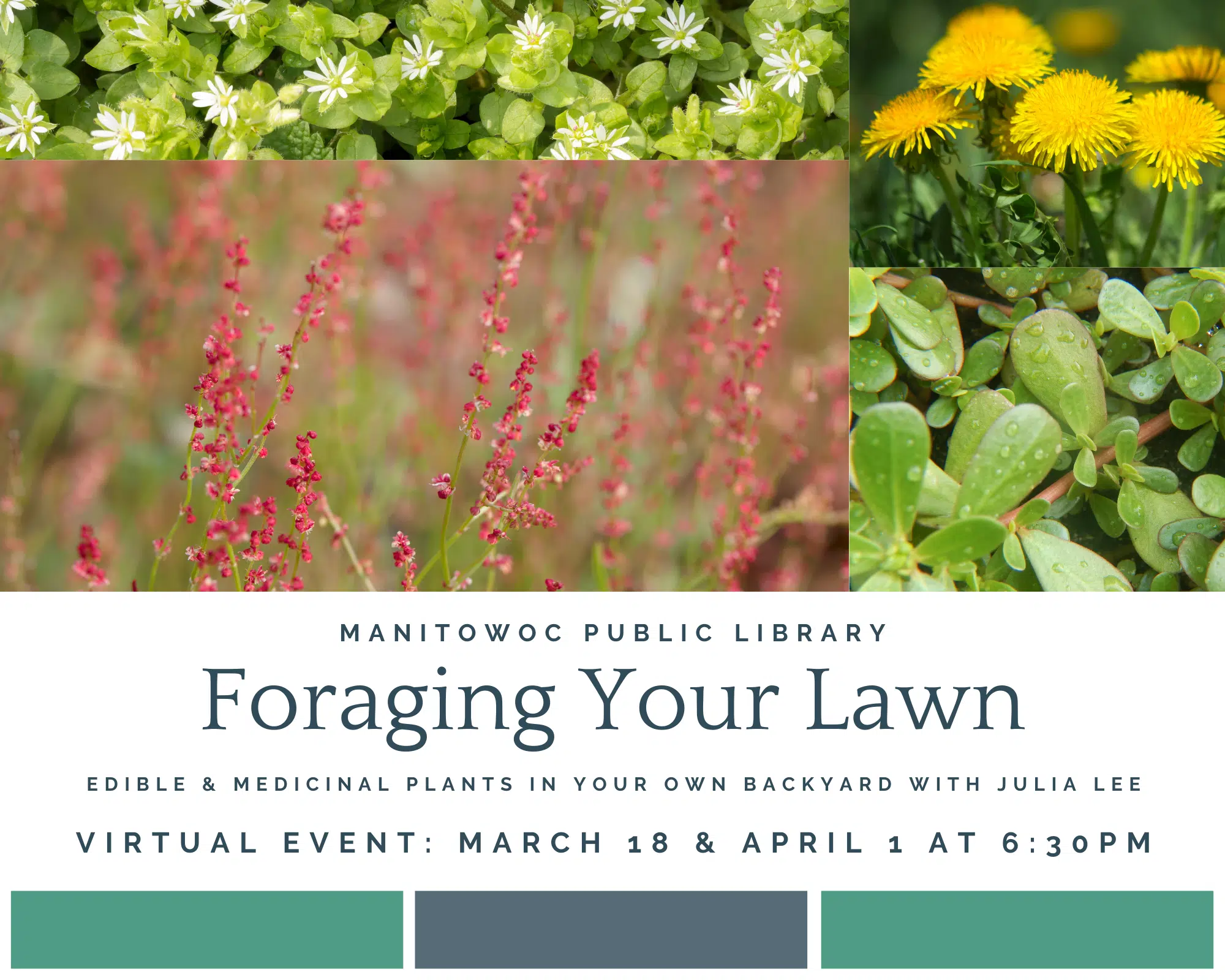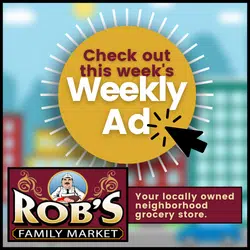
The following is an article written by Meredith Ganzinski, the Adult Services Associate at the Manitowoc Public Library.
Every day brings us closer to spring. I’m so excited about planting season this year and am definitely looking forward to being warmed by the sun! Speaking of spring, I’d like to turn my attention to Julia Lee. I know, typically MPL’s Youth Services Manager is featured writing about crazy fun children’s programming, but one of her hobbies is foraging her own lawn! I’m excited to announce that she will be doing a two-part virtual program called “Foraging your Lawn” for the Library. Full disclosure—I know nothing about foraging, so to learn more, I interviewed Julia.
Meredith: Now that I think about all the different plants that grow among the grass in my yard, foraging your lawn is an interesting topic. I’m curious—how did you get started foraging your own lawn?
Julia: I’ve always loved gardening and am passionate about local food. I love growing my own food and knowing exactly where it comes from. I started by learning about traditionally cultivated plants and herbs, their properties, uses, and health benefits. A few years ago, I was working in an organic food co-op that sold bulk herbs. One of the herbs that we sold by the pound was roasted dandelion root. I started learning all about the health benefits of this “weed” and got super curious—what other beneficial “weeds” were in my backyard? I started reading foraging books, but was really nervous to actually go out and harvest plants. I was terrified I’d poison myself accidentally, so I started with the safest of all foraging plants: the wonderful dandelion. Dandelions are a great beginner foraging plant—almost everyone can identify them by site and there are no poisonous look-alikes. I started out being able to identify one or two plants and now I know dozens!
Meredith: What kinds of plants have you been able to use from your lawn?
Julia: A surprising amount! I have harvested dandelions, clover (both red and white), chickweed, wild plantain, purslane, ground ivy, violets, and even a scrumptious puffball mushroom!
Meredith: That is a surprising number of plants! What resources did you use to learn the local plants that can be foraged?
Julia: My biggest resource is the Library! I think I’ve checked out ALL the books the Manitowoc-Calumet system offered on the subject of foraging. I also used a few websites. I’ll be sharing my favorite books and websites in my presentation!
Meredith: What about pesticides? What if I don’t know if they’ve been used on my property? Is it still safe to harvest edible plants from my lawn?
Julia: I would advise caution and patience whenever you don’t know the history of an area. I moved into my house almost four years ago now. I had no idea if pesticides were used on my lawn, so I waited a few years before harvesting anything. Is there a neighbor you could ask if the previous owner sprayed? If no information is available, I would advise waiting at least a full year before harvesting just to be on the safe side. If you have sprayed your lawn in the past and now wish to forage, I would contact the company you used and ask about the specific pesticides/herbicides. The company should be able to tell you how long it takes for the chemicals to safely breakdown.
Meredith: Out of curiosity, did you end up changing the way you cut your lawn when you started foraging your lawn?
Julia: Yes! I actually cut my lawn much less and leave the grass longer. Why would I want to cut all the plants I want to EAT? Leaving your grass longer/cutting less frequently is also good for the pollinators who rely on the dandelions, clover, violets, and ground ivy flowers!
Meredith: Thanks, Julia! I must say, I had the opportunity to try the dandelion lemonade that you made last summer and it was so good and refreshing. Will you be sharing recipes during the program?
Julia: YES! Eating the plants is the BEST part! I have had so much fun trying new recipes with wild foods! I’ll be sharing some of my favorite treats (with links to recipes!) as a part of each session.
Thank you, Julia! I can’t wait to learn more during your presentation. Tune in on March 18 at 6:30 PM to either MPL’s Facebook page (www.facebook.com/manitowoclibrary) or our YouTube channel for “Foraging Your Lawn: Part 1” and again on April 1 at 6:30 PM for the second half of “Foraging your Lawn!”












